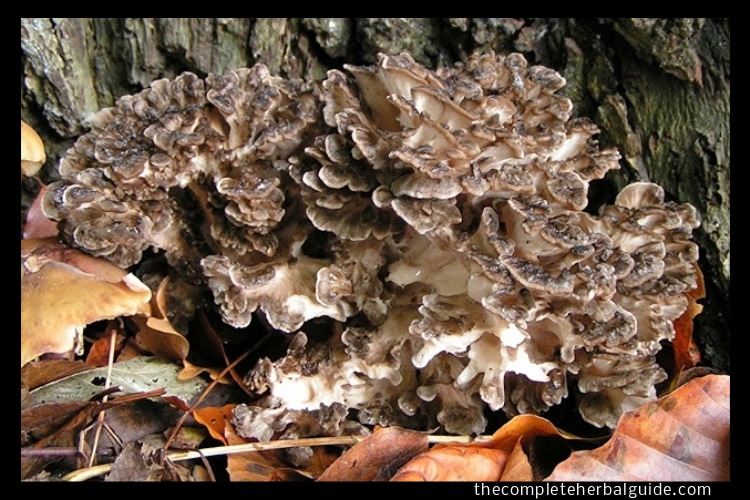
20 Fabulous Fennel Tea Benefits [Including a Delicious Fennel Tea Recipe]
A cup of fennel tea, made from the seeds, fresh leaves, or the bulb, after a meal can treat digestive issues like heartburn, flatulence, bloating, stomach cramps, and diarrhea. As fennel has estrogen-like chemicals, the tea can reduce menstrual cramps and symptoms of menopause and may increase milk flow in lactating mothers. It also cleanses the blood, helps the heart and kidneys, balances hormones, and treats respiratory problems.
Table of Contents
- What is Fennel Tea?
- History of Fennel
- Fennel Tea Benefits
- Helps Heartburn
- Fennel Tea Improves Women’s Health
- Fennel Tea Promotes Weight Loss
- Fennel Tea Promotes Digestive Health
- Fennel Tea Kills Internal Parasites
- Fennel Tea Helps Prevent Anemia
- Fennel Tea Improves Skin
- Fennel Tea Eliminates Gas
- Fennel Tea Reduces Heart Diseases
- Fennel Tea Helps Prevent Cancer
- Fennel Tea Regulates Blood Pressure
- Fennel Tea Promotes Brain Health
- Fennel Tea Treats Diarrhea
- Fennel Tea Treats Colic
- Fennel Tea Boosts Immunity
- Fennel Tea Regulates Menstruation
- Fennel Tea Promotes Breast Enlargement
- Fennel Tea for Eye Care
- Fennel Tea Treats Respiratory Disorders
- Fennel Tea for Metabolism
- Other Fennel Tea Benefits & Fennel Tea Uses
- How to Make Fennel Tea
- Ingredients
- Directions
What is Fennel Tea?
Fennel has been used as a medicinal and culinary herb since the times of the ancient Greeks. For those who have trouble with poor digestion, gas, belching, and bloating, a simple cup of fennel tea after a heavy meal can be the simplest and most effective remedy. Fennel also reduces bad breath and acts as an antibacterial in the mouth.
History of Fennel
Historically, the use of fennel dates back to ancient Greece and Rome, where it was used in traditional rituals and celebrations as a symbol of Nature. Greek doctors prescribed this tea to nursing mothers in order to increase breast milk.
Fennel Tea Benefits
Helps Heartburn
Fennel is used for various digestive problems including heartburn, intestinal gas, bloating, loss of appetite, and colic in infants.
Fennel Tea Improves Women’s Health
The key to fennel’s reputation as an aphrodisiac lies in the fact that the plant contains certain compounds that are similar to the female hormone estrogen. These plant-based estrogen-like compounds are known as phytoestrogen and are believed to stimulate sexual desire among women. Probably for this reason too, fennel was used as a breast enlarger in folk medicine. In fact, so rich is fennel in phytoestrogens that in the 1930s, the herb was considered as a source for producing synthetic estrogens.
Fennel Tea Promotes Weight Loss
Fennel is also believed to be a potent carminative and has been used to aid weight loss. Historically, fennel was widely consumed in times of Lent or other fasts as a way of staving off hunger. It is this aspect of fennel that can help in the treatment of obesity and thus make their bodies leaner and fitter.
Fennel Tea Promotes Digestive Health
Because of its fiber content, fennel helps to prevent constipation and promotes regularity for a healthy digestive tract.
Fennel Tea Kills Internal Parasites
According to anecdotal evidence, fennel is believed to be a strong anti-parasitic. Fennel seed essential oil is used to flush parasites and their waste from the body and has also been historically used to treat Candida overgrowth. That being said, Dr. Axe seems to think fennel is beneficial and can help.
Fennel Tea Helps Prevent Anemia
Iron deficiency is one of the most common nutrient deficiencies in developed countries and a leading cause of anemia. Pairing foods like fennel that are high in vitamin C with foods that are iron-rich maximize the body’s ability to absorb iron.
Fennel Tea Improves Skin
Raw fennel is an excellent source of vitamin C. Vitamin C is essential to collagen, the skin’s support system. It works in our bodies as an antioxidant to help prevent damage caused by the sun, pollution, and smoke.
Fennel Tea Eliminates Gas
Fennel is very popular as an antiflatulent, due to the carminative properties of the aspartic acid found in fennel. Its extract can be used by everyone, from infants to the elderly, as a way to reduce flatulence and to expel excess gas from the stomach. It is commonly used in medicines to reduce symptoms of non-ulcer dyspepsia and flatulence in infants and young children.
Fennel Tea Reduces Heart Diseases
Fennel is a great source of fiber, as mentioned above, but besides the advantages to digestion that fiber provides, it also helps to maintain healthy levels of cholesterol in the bloodstream. This means that it can stimulate the elimination of damaging LDL cholesterol, which is a major factor in heart diseases, atherosclerosis, and strokes.
Fennel Tea Helps Prevent Cancer
The raw vegetable itself hasn’t been extensively studied in regards to cancer protection, but the fennel seed extract has, and the findings regarding cancer protection are quite impressive. It shows that the extract can not only inhibit the growth of tumors, thanks to its concentrations of flavonoids, alkaloids, and phenols but that it can even be somewhat chemo-protective against the harmful effects of radiation during cancer treatment. A fennel seed extract has been found to be a preventative of various breast cancer and liver cancer strains.
Fennel Tea Regulates Blood Pressure
Fennel is a very rich source of potassium, which is an essential nutrient in our bodies and is vital for a number of important processes. One of the attributes of potassium is its quality as a vasodilator, which means that it relaxes the tension of blood vessels, thereby reducing blood pressure.
High blood pressure is connected to a wide range of health issues, including heart attack, stroke, and atherosclerosis. Also, for diabetic patients, blood pressure issues can make the management of their insulin and glucose levels very difficult and can be the cause of many potentially lethal complications. A cup of fennel bulb in your daily diet will pump you full of potassium and all the benefits that come along with it.
Fennel Tea Promotes Brain Health
Potassium, found in high levels in fennel bulbs and seeds, is an electrolyte, which means that it facilitates increased electrical conduction throughout the body. This includes connections within the brain, which is a veritable switchboard of electric currents. Potassium can help increase brain function and cognitive abilities through this quality. Also, fennel is a vasodilator, which means more oxygen reaches the brain and neural activity can work at optimal functionality.
Fennel Tea Treats Diarrhea
Fennel is helpful in curing diarrhea if it is caused by bacterial infections because some components of the essential oil in fennel such as anethol and cineole have disinfectant and antibacterial properties. Some amino acids, such as histidine, can aid in digestion and the proper functioning of the digestive system, thereby helping to eliminate diarrhea due to indigestion. Fennel has long been used by indigenous cultures as a way to eliminate diarrhea.
Fennel Tea Treats Colic
Polymeric and heavy molecules are useful in the treatment of Renal Colic. Such polymers, also called Phytoestrogens, are found in Anethole, a component of the essential oil in fennel. This attribute of fennel makes it quite helpful in the treatment of Renal Colic. Fennel has certain antispasmodic qualities which also help it relax smooth muscles and reduce the discomfort associated with the condition.
Fennel Tea Boosts Immunity
1 cup of fennel bulb contains almost 20% of the daily requirement of vitamin C, which makes fennel quite a rich source of this beneficial element of our diet. Vitamin C improves the general immune system health, produces and repairs skin tissue, helps to form collagen, and also protects the blood vessel walls as an antioxidant against the harmful effects of free radicals that can frequently lead to heart disease.
Fennel Tea Regulates Menstruation
Fennel is also an Emenagogue, meaning that it eases and regulates menstruation by properly regulating hormonal action in the body. Furthermore, fennel is used in a number of products to reduce the effects of PMS, and it is also used traditionally as a soothing pain reliever and relaxing agent for menopausal women.
Fennel Tea Promotes Breast Enlargement
The flavonoids present in fennel seeds increase the amount of estrogen thereby acting as a stimulant and tonic. Fennel seeds help increase the size of the breasts as they increase the formation of new cells and tissues in the breast.
Fennel Tea for Eye Care
Using fennel in food helps protect the eyes from inflammation, as well as helping to reduce disorders related to premature aging and macular degeneration. This is due to the high abundance of antioxidants (vitamin C and amino acids like Arginine are very beneficial for the rejuvenation of tissues and the prevention of aging), detoxifiers, and stimulants. They are more specifically found in fennel essential oil, as well as minerals like cobalt and magnesium. Finally, the juice of fennel leaves and the plant itself can be externally applied to the eyes to reduce irritation and eye fatigue.
Fennel is also a rich source of flavonoids, which are very useful in protecting against pigment cells dying due to oxidative-stress-induced death. By protecting against this destruction of the pigment cells, fennel can safely be classified as effective in eye health for numerous reasons.
Fennel Tea Treats Respiratory Disorders
Fennel is useful in respiratory disorders such as congestion, bronchitis, and cough due to the presence of Cineole and Anethol, which are expectorant in nature, among their many other virtues. Fennel seeds and powder can help to break up phlegm and prompt loosening of the toxins and buildup of the throat and nasal passages for elimination from the body and quicker recovery from respiratory conditions.
Fennel Tea for Metabolism
Fennel is a source of vitamin B-6, which plays a vital role in energy metabolism by breaking down carbohydrates and proteins into glucose and amino acids. These smaller compounds are more easily utilized for energy within the body.
Other Fennel Tea Benefits & Fennel Tea Uses
Fennel is a diuretic, which means that it increases the amount and frequency of urination, thereby helping the removal of toxic substances from the body and helping in rheumatism and swelling. Fennel also increases production and secretion of milk in lactating mothers and since this milk contains some properties of fennel, it is an anti-flatulent for the baby as well. It strengthens hair, prevents hair loss, relaxes the body, sharpens memory, and has a marvelous cooling effect in summer. This can be achieved if the pale, greenish-yellow water, in which it is soaked, is ingested with a bit of sugar and black salt.
How to Make Fennel Tea

Prep Time: 5 Minutes
Cook Time: 10 Minutes
Ingredients
- 2 TSP Fennel Seeds, Roots, or Leaves
- 2 C Water
- 1 TSP Honey or Sugar
Directions
Step One
Measure the right amount of fennel seeds that will be used in making the tea. It is recommended that 2 teaspoons of fennel seeds are used. These seeds have volatile and highly nutritious oils that are very healthy. Two spoonfuls of seeds will produce good quantities of fennel essential oil. If one wishes to incorporate other ingredients, then this is the stage to do so. To save time you can also buy pre-measured loose tea bags.
Step Two
Crush the seeds together to release the natural oils. I use a mortar and pestle. If you don’t have one, it’s time to get creative. A rolling pin, meat hammer, or even a bottle can be used to crush the seeds in a pinch. If you’re lazy, dropping the seeds into an electric coffee grinder is the fastest and most efficient method.
Optional Substitution
If you don’t have fennel seeds a small bundle of fennel frond or roots can be used instead. Chop the leaves at the top (the frond) into large pieces. The large pieces ensure that oil production is enhanced. For the fennel bulb (the root), you only need two teaspoons chopped for this recipe.
Step Three
Turn your stovetop to medium-high heat and add 2 cups of water. Boil water just until you see vapor rising (around 195° F) and then turn the heat down to a simmer. Add the fennel seeds and set a timer for 10 minutes. Note that bringing the water to a rapid boil will make the process faster but the high temperature will destroy the volatile oils in fennel that are also useful. So, keep the temperature lower to ensure that the fennel tea prepared is of high quality and will be useful.
Brew the seeds for approximately 10 minutes.
If you wish to give the tea an even stronger fennel flavor, use fennel tea leaves (frond) or roots (bulb). The fennel roots and leaves have a rougher texture as compared to the seeds and may, therefore, take more time during brewing (15-20 minutes).
Step Four
The fennel has already boiled and therefore needs to be served for drinking. Remove the seeds with a sieve or decanter into a cup. The addition of sweeteners that include honey, and sugar, among others, to improve the taste and flavor are added to the tea in this step.
Step Five
Allow the prepared tea to cool for some minutes until it is comfortable to drink. It should be noted, however, that the longer it takes to cool, the more volatile elements are lost. There is a possibility of the fennel tea becoming less nutritious if left for long hours after preparation without being consumed. Since the aim of making fennel tea is to get its nutrients into our bodies, it should be consumed as soon as possible after preparation.
It should be noted that the right amounts of fennel should be used in whichever form consumers prefer. The fennel tea is not advisable for pregnant and expectant mothers as it contains compounds that may increase the risk of pregnancy complications.










